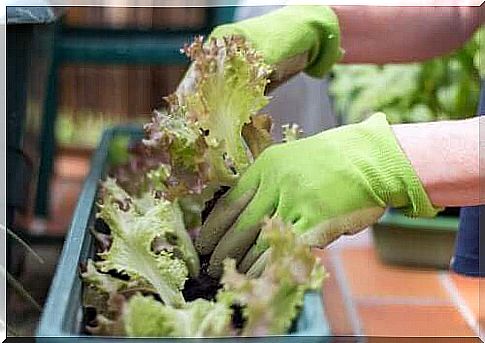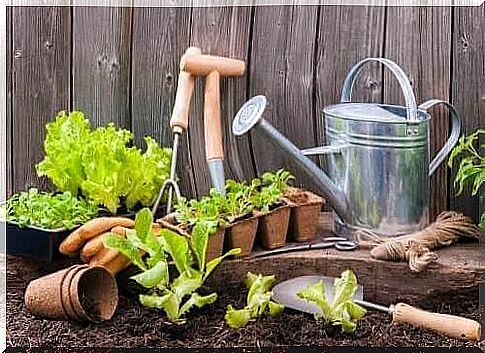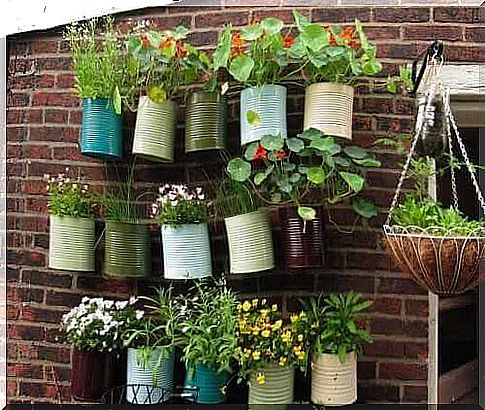How To Make An Urban Garden In A Small Space

Despite the enormous growth of cities and technological progress, creating an urban garden is more popular than ever. However, it is important to consider a few things if you only have a small space to create your garden.
In today’s article, we’ll tell you more about a simple approach to creating a garden in the city. We also give you some practical tips on how to grow fruits, vegetables and aromatic plants, among other things.
This way you can start enjoying the green space and even grow things that allow you to feed your family in the most healthy way possible. You will also feel great, as creating a garden in the city is a very rewarding activity.
How to make an urban garden in a small space
Select the spot carefully

The new garden project you are about to undertake can be a little tricky. It is therefore important that you carefully select the location of your garden. Keep in mind that the success of your plants depends on the light they receive. Also remember that sunny spots accelerate seed development.
You also need a good drainage system and of course a water source that is as close to your yard as possible for irrigation purposes. This way you can save some time as it eases your garden watering needs.
Keep in mind that you’re working with soil and fertilizers when selecting the spot for your garden, whether it’s on a deck or patio. For example, think about how to keep the space tidy and contained so that you don’t get mud in your house every time you get out of your yard.
Gardening Lessons
Before you start spending money on seeds and basic gardening tools, learn a little bit about gardening, even if it’s just some theory. There are so many things available that would save you months of work and take care of your plants. Therefore, it is better to take some lessons or read some literature on the subject.
For example, you should have at least knowledge of the following principles:
- How to care for the soil and the use of different fertilizers.
- Which months are suitable for sowing.
- How to water and when to prune.
- The best ways to deal with pests/diseases.
The vertical city garden

With vertical gardens, your main advantage is that you can optimize the space to the maximum. This is because it takes up much less space than a conventional horizontal garden. At the same time, you save time on maintenance. This is because these types of gardens rarely get weeds and you don’t have to bend down to dig holes.
Another great advantage of vertical planting is that you can maximize the light and air exposure of your plants. You will also get fewer pests and if they do bother you, it will be easier to deal with. The best fast-growing crops for a vertical garden are:
- salad
- chard
- Spinach
- and so forth
Plant them among the varieties that grow more slowly. As you can see, the balcony, terrace or roof terrace are perfect places for an urban garden. You can use pots or grow tables. You can even start a hydroponic growing system (where everything grows in water so no soil is needed).
Original ideas
Today, social networks allow us to see all kinds of urban gardens from all over the world. It’s amazing how we can tap into the imagination of so many people trying to make the most of their small spaces.
Here are some helpful tips for your urban garden:
- Take advantage of used pallets, tires and all kinds of containers to use on your grow tables and as pots.
- If you are new to the world of gardening, you can make it easy on yourself. Just make some signs to help you remember the names and characteristics of each plant you have.
- Plant aromatic plants. Few things are more pleasant than going to your own garden to get some fresh herbs for your dishes.
- Ask around and find out where to find the most suitable substrate for the type of soil you will be using.
- If you are often away from home and have no one to water your plants, install an automatic irrigation system.
- Compost any waste produced in your yard (pruning, discarded fruit, herbs, etc.). It adds natural nutrients to your soil.
Are you ready to create your own urban garden? Not only will you be able to grow your own organic food without pesticides, but you will also have a hobby to de-stress! Maybe other family members are interested too!









